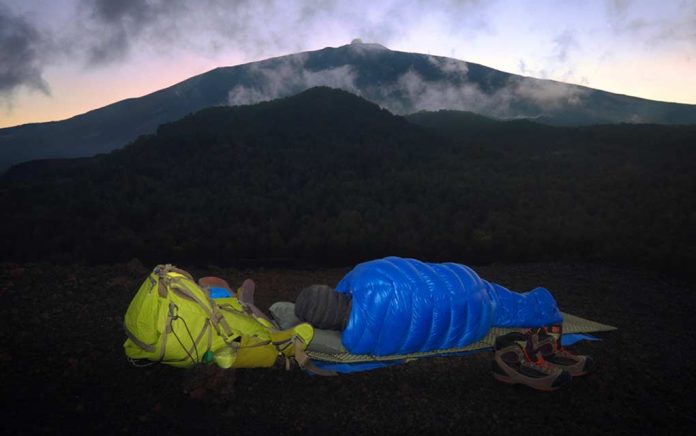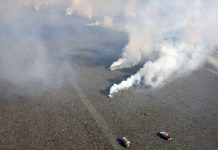(SurvivalDaily.com) – Like food and water, the human body needs sleep. While at least one case study shows that a human did manage to survive being sleepless for around 11 days, the average person begins to experience side effects of staying awake after only around 24 hours. ASAP science explores this topic in a recent video.
So, what’s the story? It starts with a simple case of exhaustion that quickly builds into confusion, delirium, and even hallucinations. All of these can be a death sentence in a survival situation because they strip away your ability to function and think.
Rest Up
Sleeping is an important part of an overall healthy lifestyle. There are always people that want to be more productive or active, who think “I’ll just cut a few hours of sleep out.” The truth is you’re not gaining anything by doing this. In fact, you’re basically undermining all the work you put in. Try your best to get seven to eight hours of sleep every single night (or whenever it’s convenient for you).
Comfort is Key
In the case of sleep, quality matters just as much as quantity. Five quality hours of deep sleep are more restorative than seven hours of fitful tossing and turning. But that’s not always easy to achieve in a crisis, especially if you’re uncomfortable.
Buying a good mattress can make all the difference, at least if you’re bugging-in. Having that cozy nest to crawl into is an underrated luxury! Of course, if your plan is to bug-out, this won’t be an option. A good alternative is to keep a yoga mat with you or an inflatable mattress — just something that keeps you up and off the ground.
Downtime and Sleep Schedules
When you’re given time to rest and unwind, take advantage of it. This sort of thing probably isn’t going to be commonplace if SHTF. So, if your “moment to rest” happens to be in the day (and it’s safe to do so), go ahead and get as much as you can.
As far as planning ahead, know that eight hours of good sleep will last you about 18 hours before the benefits run out. After that point, you need to prioritize rest if you want to maintain your health and sanity long-term. Remember that this isn’t just a matter of “going soft,” sleep lets your body regain strength and heal.
If you’re with a group, implement a schedule for everyone. Sleep in shifts in case danger turns up. Trade times until you find a schedule that works, and be open to adjustments as the situation unfolds.
Don’t “Practice” Too Often
Depriving yourself of sleep may seem like a good training method. This is not only false, but also potentially dangerous. You’re far more likely to suffer injuries or accidents, and pretty much everything you learn will be forgotten after you’ve slept.
If you want to do this, tape the “training session” for later review. This way you can watch the tape after you’ve rested and are better able to retain info. You’ll see even simple things prove to be difficult when you’re lacking sleep.
Alternatives
There are a few alternatives to sleep, but they’re extremely temporary. First, keep your body filled with calories to bring your energy up. Power naps can be quite useful, too, especially if used right. Mythbusters actually did a special on this topic where they explored the most advantageous times to nap and/or when to stay awake. Just be warned if you sleep more than 30-minutes, you will often wake up groggier than before.
As for caffeine? It will help in a pinch, but beware the eventual crash afterward. What goes up must come down, and sometimes it comes down at the worst possible time just as a new crisis begins to unfold. The same is true for other stimulants, including both drugs and herbal preparations.
Conclusion
Sleep is critical, so don’t take it for granted. When SHTF, you might need to get creative in order to safely get those hours in, but you should still make the effort. Proper rest will allow your body to recover from the rigors of surviving during an emergency, or even the normal day-to-day grind.
Did you know that sleep was so important for survival? Do you have any experience sleeping in unusual areas, or in a survival situation? Reply to your email and share your experiences, we would love to hear from you!
Copyright 2021, SurvivalDaily.com

















